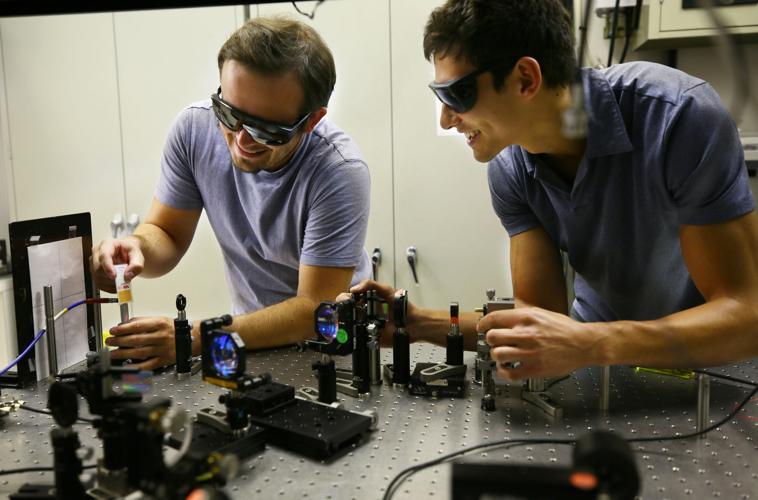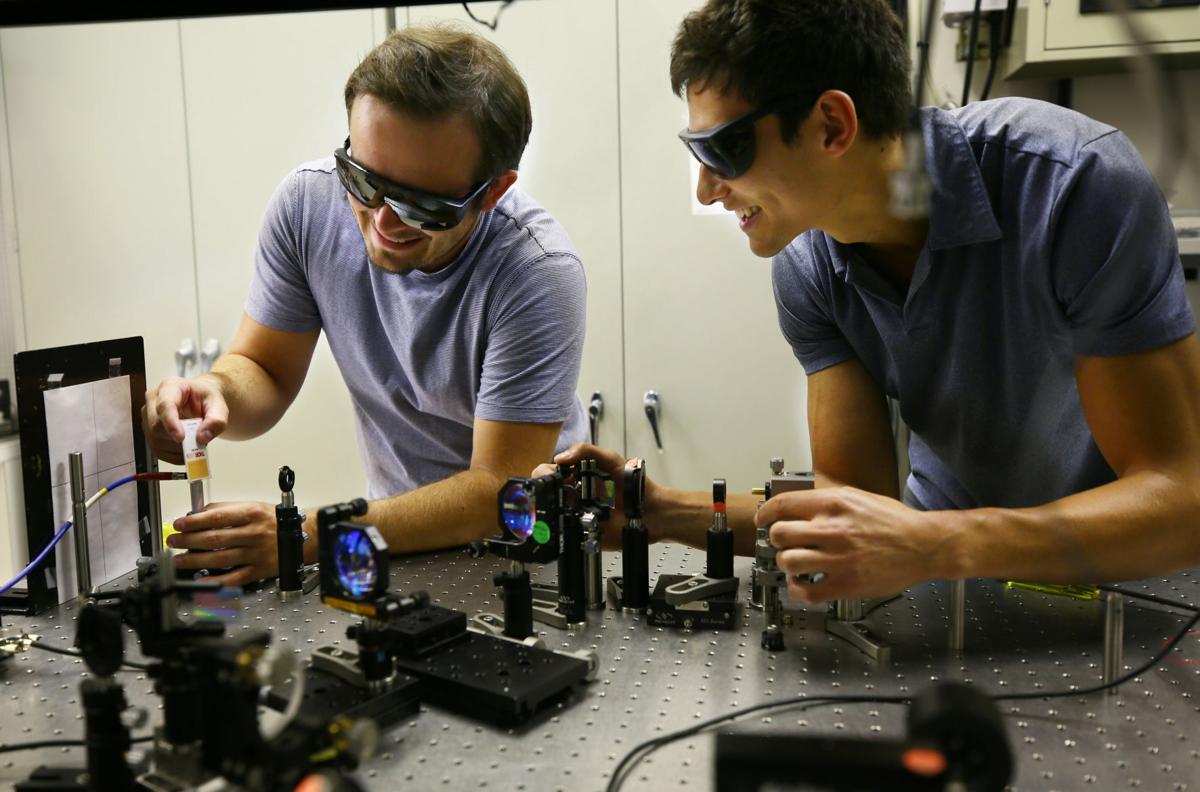Longtime Tucson laser and directed-energy technology developer Applied Energetics Inc. is relocating its corporate headquarters to the University of Arizona Tech Park on South Rita Road.
The company said the move, expected to take place over the next two months, will support future growth with greater capacity for research, product development and production.
Applied Energetics has had its corporate headquarters on West Ruthrauff Road and technical facilities on the south side and plans to consolidate those functions at the tech park.
The new 13,000-square-foot space provides the company, which serves both defense and commercial markets, with a facility that is compliant with international arms-control regulations and laser-safety rules, and includes a 4,800-square-foot, Class 1000 clean room.
Applied Energetics said it will benefit from millions of dollars of capital investment made by the space’s previous occupant, Coherent/DILAS, a global provider of laser technology for scientific, commercial and industrial customers.
Applied Energetics CEO Gregory Quarles said the move triples the company’s footprint and eliminates the downtime involved with a full facilities build-out.

Gregory Quarles
“This facility, with its research labs and state-of-the art clean room, is perfectly suited and move-in ready to align with our defense and production road map,” Quarles said in announcing the move.
The company joins more than 60 other tech firms at the 1,300-acre UA Tech Park, including Raytheon Missiles & Defense and IBM.
Founded in 2002 as Ionatron Inc., Applied Energetics won nearly $40 million in U.S. military contracts to develop its laser-directed energy technology to defeat improvised explosive devices, or IEDs, and developing special lasers for the Navy.
After failing to land a major production contract, the company suspended its business activities in 2014 and became a “shell company” under federal securities rules.
In 2017, Applied Energetics emerged from its shell to raise $5 million to restart its development of ultra-short-pulse lasers for defense and commercial uses.
The company acquired Applied Optical Sciences, another laser tech company founded in 2010 by an Applied Energetics co-founder, in 2019.
UACI STARTUP WINS GRANT
SGNT Inc. a startup housed at the University of Arizona Center for Innovation, has received a $749,000, follow-on Small Business Innovation Research grant through the National Science Foundation to advance its anti-tampering technology for product packaging.
The grant will continue the company’s work under a $224,470 Phase I SBIR award issued in 2019.
SGNT, which was founded by CEO Emil Tremblay and Chief Operating Officer Tommy Rompel, has developed a system that can monitor the integrity of packaging and report any tampering via radio-frequency identification and a smartphone app first released in 2019.
The product is aimed at reducing the financial loss from product counterfeiting and tampering, especially for pharmaceutical and defense-related products.
PYX HEALTH SHOWS RESULTS
A Tucson health-care startup that has developed an interactive platform to address loneliness and isolation in patients has reported positive results after a trial with Banner-University Health Plans.
A white paper shows that Banner’s use of Pyx Health’s novel interactive “platform-plus-support center” with members after discharge from emergency room or inpatient care resulted in a substantial reduction in subsequent inpatient costs and emergency department use.
Analyzing the experiences of 1,170 members aged 18-103 years and comparing that data with a control group that did not access the digital platform, Banner realized savings of $847 per member per month over a six-month period, according to a paper authored by Dr. Thomas M. Ball, and Dr. Sandra Stein, Banner-University Health Plan’s former and current chief medical officers.
The Banner health plan, which covers more than 200,000 Medicaid, Medicare and long-term patients in Arizona, engaged Pyx after its analysis of health-plan usage clearly showed that general mental health conditions — such as anxiety and depression — and serious mental illness can increase medical spending, including hospital admissions and emergency department use.
The Pyx platform is based on a mobile app that features an animated “chatbot” named Pyxir that provides constant companionship, support and self-management tips.
The platform allows for regular screenings for loneliness and “social determinants of health,” a concept developed by the World Health Organization that includes daily living conditions and socioeconomic factors.






